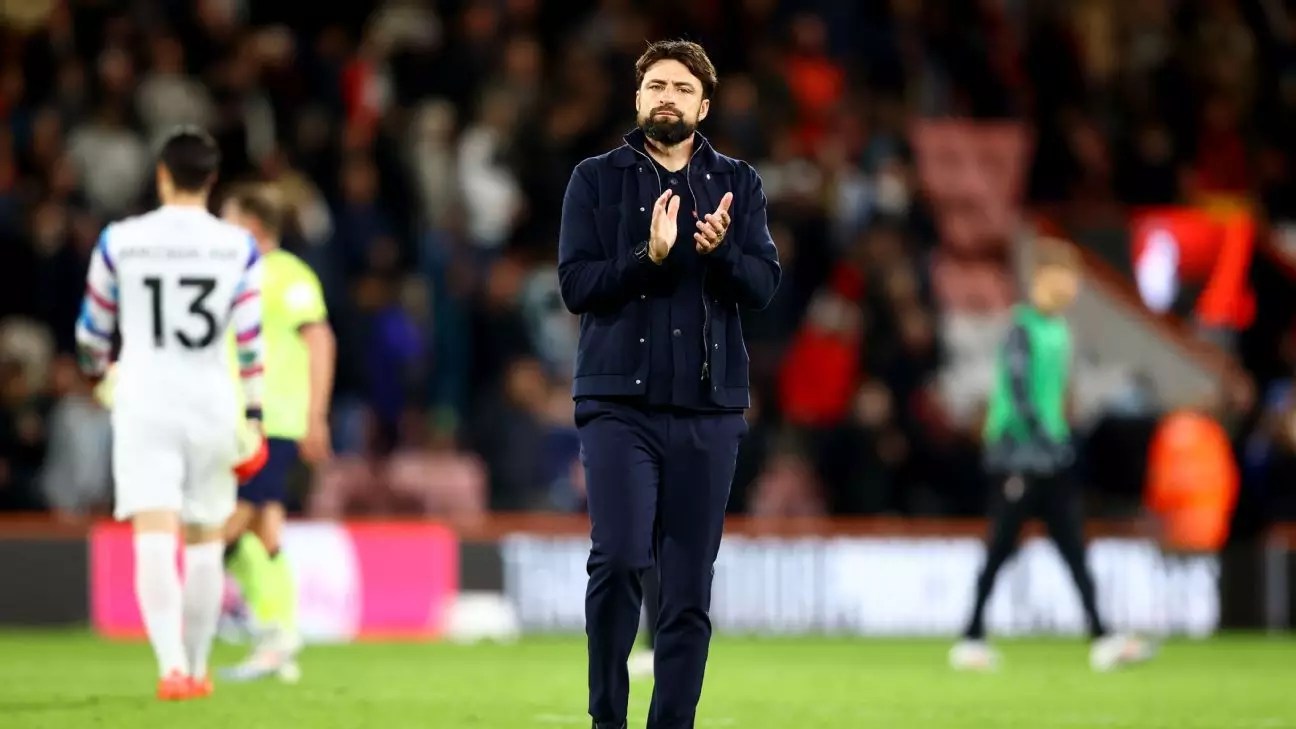In a dismal display on the pitch, Southampton succumbed to a 3-1 defeat against their local rivals, Bournemouth. This match, part of the Premier League, served as a harsh reminder that the Saints’ journey back to form remains laden with challenges. Head coach Russell Martin did not hold back in his criticism of his players’ lackluster performance. The inability to muster even a semblance of fighting spirit was alarming, revealing deeper issues within the team as they remained rooted in the relegation zone.
The outcome of the match was not merely a reflection of the scoreline; it was a visible manifestation of Southamptons’ internal struggles. Conceding all three goals in the first half highlighted a disturbing trend: the team appeared unprepared and unmotivated. Martin’s post-match remarks illuminated the need for a fierce competitive edge. He pointed out the alarming disparity in the physicality of the game, with Bournemouth committing nearly double the fouls. This statistic underscores the notion that for any team aiming to compete in the Premier League, a robust fighting spirit is non-negotiable.
While Southampton did manage to find the net through Taylor Harwood-Bellis early in the second half, it was merely a fleeting moment of hope in an otherwise bleak performance. Instead of igniting a rallying cry, this goal only seemed to serve as a cruel reminder of what could have been if the team had shown more heart and determination from the start.
Addressing the Culture of Mediocrity
Russell Martin expressed a sense of urgency, acknowledging that deeper systemic changes are needed. “It’s not just about style of play,” he stated, emphasizing the importance of a mentality shift within the squad. The issue, as he outlined, was not solely tactical or technical; the essence of competitiveness was missing. In a league as cutthroat as the Premier League, teams that fail to challenge both physically and mentally are destined for failure.
While he took responsibility as a leader, Martin’s remarks highlighted the delicate balance between accountability and support. His commitment to the players was evident, but it also raises questions regarding the squad’s mentality when facing adversity. His assertion of “never blaming the group” speaks to his role as a leader, but it also suggests a need for players to self-reflect and rise to the occasion.
With only one point from their opening six matches, Southampton must act swiftly. The current relegation position is not merely a statistic; it is a warning sign that cannot be ignored. Martin’s challenge will be to cultivate a culture of tenacity and resilience. Despite the setbacks, as long as leadership is paired with an unwavering resolve from the players, there remains a glimmer of hope for recovery. Changes must be implemented quickly to inspire confidence and combat the stagnation that has characterized their start to the season. The journey for Southampton is fraught with obstacles, yet it also presents an opportunity for rebirth.


Leave a Reply